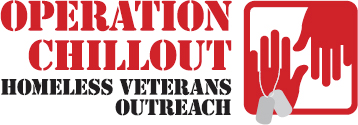Greyhound Therapy
In many of South Jersey’s counties, homeless people seeking services are offered a one-way ticket to Trenton or Atlantic City.
When Thomas Jones, a native of Asbury Park on the Jersey Shore, wanted to get clean and straighten out his life, service providers in his county gave him a one-way ticket to Trenton, 60 miles away. “In Asbury Park they didn’t have assistance—no shelter, no soup kitchen,” he said. “They just push you out to Trenton or Atlantic City.” Other homeless men recounted similar stories. When they got out of prison or lost their jobs and couldn’t keep up with the bills, they sought help. Instead, they were offered one-way bus rides to the Trenton or Atlantic City, home to the Trenton and Atlantic City Rescue Missions, the only two comprehensive shelters for adults without children in the southern half of the state.
The practice—shipping homeless people off to cities better-equipped to provide services—is common enough in southern New Jersey that it’s come to be known as “Greyhound Therapy.”
The practice—shipping homeless people off to cities better-equipped to provide services—is common enough in southern New Jersey that it’s come to be known as “Greyhound Therapy.” It’s difficult to quantify given that it’s not an official policy and there is no single offending agency, but homeless people and service providers alike report it is widespread. “Clients very often have recent medical exposure and the hospital doesn’t want to discharge them into homelessness so they tell them to go to Trenton,” says Mary Gay Abbott-Young, chief executive officer of the Trenton Rescue Mission. “The person shows up sometimes still wearing a hospital gown with a stack of prescriptions. We’ve had pre-paid taxis pull up.”
But Greyhound Therapy is a symptom of a larger problem. Even though single adults, especially men, are most likely to become homeless, most of the shelters in the state’s southern counties are designated for other groups—victims of domestic abuse, teenagers, and mothers with children. This leaves the two rescue missions—located in areas with few jobs, concentrated poverty, and violence—to pick up the slack. The two shelters provide drug and alcohol counseling, hot meals, beds, showers, clothing, and assistance in finding jobs or housing seven days a week.
There are plenty of homeless people who arrive in Trenton and Atlantic City on their own, of course. It’s easier to get to either city by mass transit than practically anywhere else in the lower half of the state; New Jersey Transit runs its sole South Jersey line to Atlantic City, while Trenton serves as a major transportation center between New York and Philly. Both are denser areas where a car isn’t a necessary.
But the lack of such shelter elsewhere means the systems in Atlantic City and Trenton are strained, and Greyhound Therapy only makes things worse. The Atlantic City Rescue Mission is full even in the summer months, when many homeless sleep under the Boardwalk. “We have people sleeping on mats in the cafeteria, and when it gets cold, people are sleeping everywhere they can in this building,” says John Demario, associate director of development at the Atlantic City Rescue Mission. “The [third floor with] mom’s and single women and kids, that’s always packed.”
Read more here: http://prospect.org/article/greyhound-therapy

